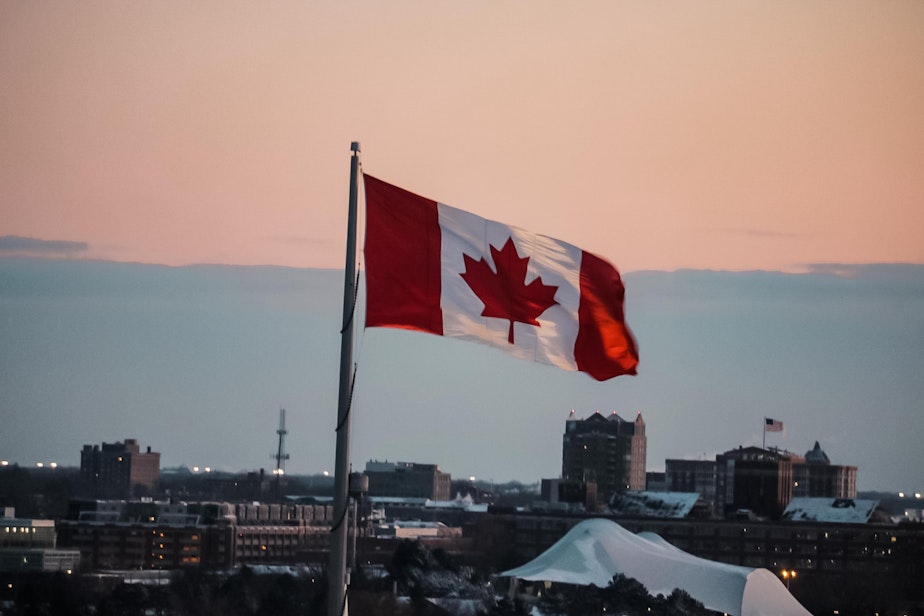O Canada: What do we really know about you?

Listener Paulette Thompson asked our SoundQs team: How much do Americans know about our neighbor to the north?
We turned to Canadian Kyla Sweet. She's with the Canadian Studies Centers at the University of Washington and Western Washington University.
Sweet said Americans don't know much about Canada — but then Americans don't know much about anywhere, even their own country.
"When they did a poll recently as to how many Americans would pass the citizenship test, only 39 percent were successful," Sweet said.
Canadians know a lot about the U.S., Sweet said, through television shows and news headlines. That's made them sensitive about how little Americans know about them. But Sweet said Canadians in turn can't necessarily name the Mexican president or other international heads of state.
Sweet said there are many reasons why Americans should know more about Canada.
"Besides the fact that we're right next door, we are one of the key trading partners for America. We share a lot of the same values, we share a similar government and a similar population," she said.
Sponsored
There's also shared history, like terrible treatment of indigenous people, Sweet said.
"But there have been some really positive changes I would say," Sweet said. "Is the government following through on everything? No. Are people's minds and hearts changed overnight? No, but it's led to some wonderful changes in institutions, including school.
"I would argue that the U.S. has quite a ways to go to come even close to those kind of changes," Sweet said.
According to Sweet, few states require grade school students to learn much about Canada. About 70 percent of the states' curriculum has no mention whatsoever of Canada. In Washington, all that's required is for third graders to be able to look at a map and identify Canada and Mexico.
Sweet designs lesson plans about Canada for K-12 students. The feedback she gets from social studies teachers can be surprising.
Sponsored
"You wouldn't believe some of the stereotypes that still exist," she said.
For example: Many of her lesson plans center around the Arctic and what life is like in the north.
"Social studies teachers from around the country and their students are often surprised to find Canadians do not live in igloos, that it is still not the traditional way of life," she said. "I talk a lot about the north and that it is not just a frozen wasteland."
She thinks there's a lack of curiosity in the U.S. about other countries and their policies.
To illustrate, she told us the story of a fourth-year student at WWU. Despite Canada being only 30 minutes away and with a lower drinking age, he had never crossed the border.
Sponsored
"He said no, that he had everything he needed right here. He didn't even need to go outside of the states to learn anything else, that America had everything he needed to know about or to learn about the world," Sweet said.
"I was really struck by that because that's a fourth-year college student, when typically you're looking out and learning and exploring and curious."
Sweet's recommendations for learning about Canada:
- Listen to the Canadian Broadcasting Corporation.
- Stream films and documentaries from the National Film Board of Canada.
- Follow Study Canada K-12 on Facebook and Twitter.
Sponsored
BTW: Why do Canadians say Eh? It reaches back to the beginning of written Canadian English but culturally it became associated with the Canadian comedy duo Bob and Doug McKenzie, when they coined the term, Take off, eh?





